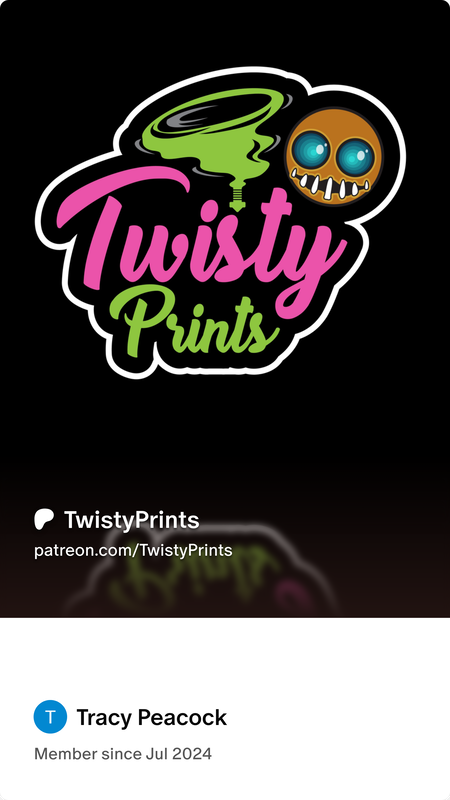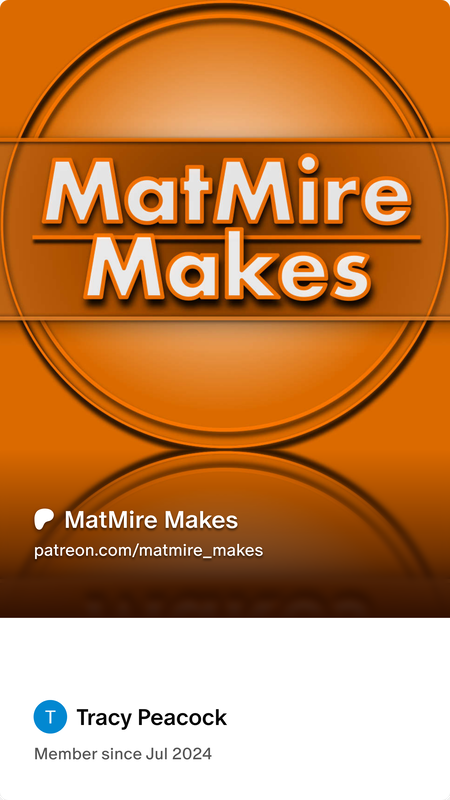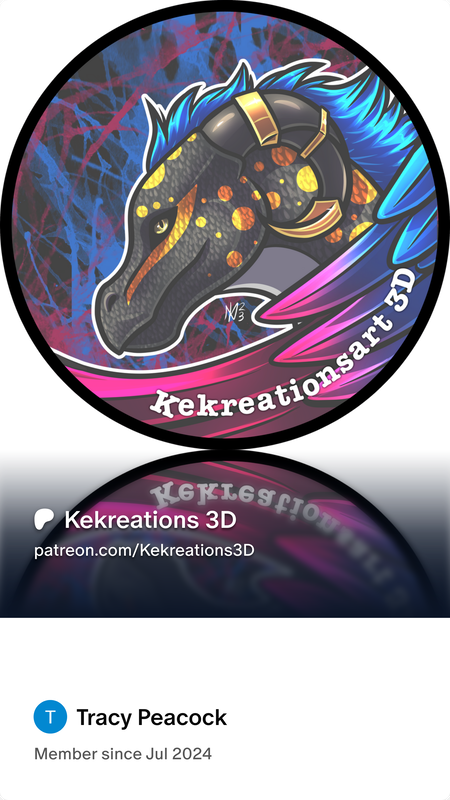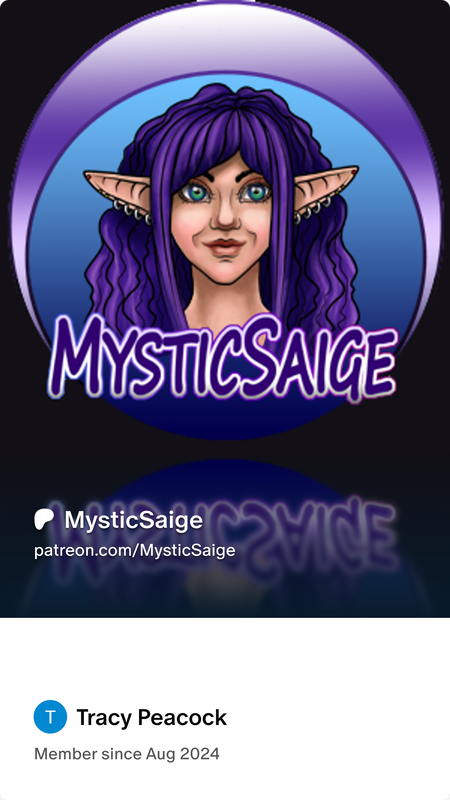|
Ah, the world of tabletop role-playing games! It’s a mesmerizing realm where you can slay dragons, rescue princesses, and voyage through mystical landscapes—all from the comfort of your living room (or basement, no judgment here!). However, amidst the chaos and fantasy, one crucial aspect often gets overlooked: **the power of the game journal**. Yep, that's right! Documenting your epic quest can significantly enhance your RPG experience. So, grab your favorite pen, put on those creative goggles, and let’s dive into the whimsical world of custom game journals!
Why You Should Keep a Game Journal: Imagine this: you’ve just embarked on a new campaign, creating a character so vibrant you can practically see them trotting across the map. But then, life gets busy, and a few sessions in, you find yourself wondering… “Wait, did my character eat a dragon or befriend it?” This is where a game journal swoops in like a bold knight riding a fierce steed! Memory Retention: Keeping a game journal is like having a magical tome that holds all your character's glory, mishaps, plot twists, and snack breaks (because yes, snacks are part of every campaign). Personally, I’ve kept journals for years, and let me tell you—there’s something empowering about flipping through those pages. Once, during a particularly rattling session, I couldn’t recall how my rogue, the infamous “Lazy Lila,” got her scars. Thanks to my trusty journal, I discovered Lila had been chased up a tree by a particularly nasty raven. The laugh we had over that reminder brought our session to life! Character Development: Your character can evolve and grow in ways you didn’t imagine, and a journal is the perfect tool to map out this evolution. Here’s a fun tip: after each session, jot down a couple of lines about how your character felt during critical moments. Maybe they faced a moral dilemma or had pizza for the first time. Relatable, right? This reflection nurtures depth in your character—next thing you know, your paladin might start questioning the righteousness of their cause. Deep stuff! Storytelling Treasure Chest: Your game journal becomes a living history of your adventures. It holds the tales of epic battles, spine-chilling encounters, and heartfelt moments. Plus, it can be a fantastic way to share your campaign’s story with others. I once shared my game journal with a new player, and they were so enthralled that they asked to join our group just because of the tales spun in those pages! Fostering Group Engagement: A game journal isn’t just a solo endeavor—it's a group effort! You can share it with friends, allowing everyone to contribute their thoughts and insights. I remember when we passed around a journal in our campaign; every player added their own voice, creating a collaborative masterpiece. By the end of the campaign, we had not only a record of our adventures but a beautiful tapestry of everyone’s unique perspectives. Choosing the Right Journal for You: Alright, now that we’re sold on the idea of journaling, let’s pick your trusty scribe—er, I mean journal. The right journal can set the tone for your lofty adventures! Format Options: Digital vs. Physical: **Digital journals:** In this tech-savvy era, digital options aren't merely a vestige of the 21st century. Tools like Notion, Google Docs, or dedicated journaling apps can keep everything organized and easily accessible. Plus, search features can help you find that one time your bard failed a performance check, and the entire tavern burst into laughter. **Physical journals:** However, nothing beats the good ol’ paper journal! The sensory experience of writing pen-on-paper—or doodling cute character sketches—can unlock creativity. Sometimes, I even catch myself writing my entries using different colored pens. Suddenly, I’m not just documenting my quests—I’m making art! Example? My cleric’s guide to making healing potions was garnished with purple stars and doodles of potion bottles! Aesthetic Preferences: Now, let’s chat style! Journals come in all shapes and sizes. Do you prefer lined, dashed, or blank pages? Personally, I lean towards lined—it helps tame my chaotic handwriting. Consider how you want your entries to look. If doodling is in your stars, a blank page might best suit your style. Size and Portability: Size matters! If you plan to carry your journal to gaming sessions, consider a travel-sized option. Just don't go too small; you don’t want to miss out on those spectacular sketches. Remember, your journal is your epic tome of adventure. So, whether it's an elegant leatherette-bound book or an enchanting spiral notebook decorated in stickers, make sure it fits your vibe! Structuring Your Game Journal: Now that you’ve got the journal, let's talk about how to structure it. After all, we want to save you from pages of chaotic musings (no matter how poetic they might feel at the time). Creating Sections: A solid structure is key to a successful journal. Here are the must-haves for your sections: - **Character Profiles:** Devote a section to your characters, complete with backstories, quirks, and future goals. - **Session Summaries:** Here’s where you’ll write a quick recap of each game session—think of it as your journal’s highlight reel. - **Role-Playing Notes:** Jot down any insights or memorable moments where your character shined (or flopped spectacularly!). Using Indexes and Tables of Contents: Need a lightning-fast way to find that note about the dragon you faced three weeks ago? Consider creating an index or table of contents. Write down page numbers next to any overarching themes, characters, or epic moments. It's a game-changer, trust me! Color Coding and Visual Aids: Visual learners rejoice! Use colored pens or tabs to indicate milestones, types of encounters, or even player interactions. Not only is it helpful, but it also makes your journal aesthetically pleasing (and a great way to elevate your game at a local RPG show-and-tell). Essential Content to Include: What’s a journal without content? Let’s get creative! Character Profiles: For each character, draft a profile with essential details—name, race, class, traits, and that all-important backstory. Be sure to include a section for character notes after every session. This could cover their evolving motives, feelings about other characters, or newfound skills. Session Summaries: After each session, take a moment to reflect and summarize what transpired. Ideally, this should include players' decisions and laugh-inducing moments. Bonus points if you can describe encounters with dramatic flair, like “Nigel the Bard’s melodious tunes caused the ogre to weep—truly a moving experience!” Role-Playing Notes: Don’t overlook this section. Taking notes during gameplay can be invaluable. Write down details about how your character feels or any dilemmas they face. Keeping these notes can empower you to stay in character and enrich your role-playing. Quotes and Memorable Moments: Every great game has quotable moments. Did the rogue make a terrible pun? Did the barbarian turn on their team accidentally? Document these gems. At your next game night, you can pull these out for a good laugh and relive the delightful chaos! Creative Ways to Enhance Your Journal: So, you’ve got the basics down. Let’s add a sprinkle of creativity! Artwork and Illustrations: If you’re feeling artistically inclined, why not doodle? Add character sketches, campaign maps, or even combat strategies. I once tried sketching a battle scene, and while the shield was more like an egg, it brought life to the page! Incorporating Music and Soundtracks: Music sets the tone, so jot down any soundtracks that inspire you or fit your character’s adventures. Listening to your playlist can help trigger memories of that one time your bard serenaded a dragon. Tracking Character Arcs and Developments: Consider adding a “Character Evolution” page where you can elaborate on important changes and growth, including lessons learned or actions that triggered significant character growth. Reflecting on this later can help illuminate the creativity in your role-playing. Collaborative Entries: Why not create a group journal where everyone can contribute? This collective effort fosters a deeper connection and preserves diverse perspectives on your shared journey. Our group did this one time, and it transformed into an epic saga, full of hilarity and action! Sharing Your Journals with the Community: Your journal is not just your personal trophy—it can be a community resource. Let’s look at how to share your hard work! Social Media and Online Forums: Today, there are myriad platforms to showcase your entries! Twitter, Instagram, and Reddit are fantastic outlets. Before I started sharing, I never knew how many people loved journaling their gaming experiences; my DMs are forever thanking me for inspiring them to start! Creating a Journal Club: You could even create a "Journal Club" with fellow players where you gather to share your recent findings or success stories. It's an exciting way to encourage creativity and deepen relationships. Trust me, nothing beats storytelling over snacks and drinks! Hosting Sessions Focused on Journaling: Designate one game night purely for discussing journaling experiences. Header discussions like "Session Highlights" or "Character Reflections" allow you to bond and learn from each other. Plus, you could run fun contests like “Best Quirkiest Character Quirk”! Conclusion: And there you have it—the ultimate guide to crafting your very own custom game journal! From memory retention to artistically enhancing your RPG sessions, a game journal can elevate your experience from the ordinary to the extraordinary. Encourage Your Journaling Journey: So, I challenge you, dear gamer, to embrace this new endeavor. Whether you’re doodling or jotting down your character’s epic saga, remember that every page holds the power to inspire, reflect, and connect. So, unleash your creativity, pick out that perfect journaling buddy (your new pen could be it!), and get started on your journaling adventure! Feel free to share your unique journaling experiences or tips through comments below or on social media. Show me what you’ve created—I can’t wait to see how you document your epic quests. Happy journaling, and may your dice always roll high! 🎲✨
0 Comments
The thrill of RPGs! You gather your friends, set the stage with snacks (because let's be honest, snacks are crucial), and dive into a world where dragons roam and your imagination is the limit. But amidst all the epic battles and heroic quests, there’s one element that can elevate your experience from great to legendary: **your character**! Sure, you might have a catchy name and a cool backstory, but have you ever stopped to think about unlocking your character's full potential? If the answer is, “Not really,” don’t worry! I’m here to help you turn your character from a mere backseat driver into a lead protagonist worthy of a bestselling novel.
1. Understanding Your Character’s Backstory, Dive Deep into Lore: First things first—let's talk backstory. You may think your character is merely a collection of stats and powers, but trust me, their history is a treasure trove waiting to enrich gameplay. When I played a rogue named “Whiskers” (yes, I named my character after a cat—don’t judge!), I dove headfirst into her background: a runaway thief with a heart of gold but a penchant for trouble. Understanding where your character comes from can help you embrace their motivations, flaws, and interactions with others. I remember a session where Whiskers had a heart-wrenching moment when she met an NPC who reminded her of her estranged sister. Instead of just rolling dice, I was genuinely invested in the drama—and so were the other players! Write a Timeline of Events: To really flesh out your character, create a timeline of significant events that shaped them. It can be as magical as slaying a dragon or as mundane as its first pancake-flip. Trust me, a well-timed pancake mishap is often funnier than a glorious battle! 2. Exploring Character Flaws, Embrace Imperfections: Now, let’s talk about character flaws. You know that saying, “Nobody’s perfect?” Well, it rings true in RPGs too! Flaws make your character relatable and provide comedic relief during serious moments. I had a friend whose character boasted the flaw "incessantly curious." It was hilarious watching her dive into things like enchanted books—even when they were labeled “DO NOT OPEN!” Creating Story Hooks from Flaws: Additionally, embrace those flaws to create story hooks that compel character development. Maybe your noble paladin has an irrational fear of cats due to a traumatic encounter with a feline in his youth. Now, every time a cat appears in the game, not only do we have a laugh, but it also opens up a chance for character growth! 3. Collaborating with Other Players, Inter-Character Relationships: Next up is collaboration with your fellow players. It’s not just about your journey; it’s about how your character interacts with others! Creating personal dynamics, whether that's friendships, rivalries, or love interests, can add drama to your campaign. My bard and an elf ranger developed a hilarious love-hate relationship where they competed for the DM's attention, leading to constant one-upping during sessions! Talk about entertainment! Shared Backstories: Why not connect character backstories? Perhaps your rogue and the wizard were childhood friends who lost touch. Unraveling their past provides an extra layer to your sessions. Plus, it makes the bond feel real—just like my shoe-shopping trip with a friend turned heel-less disaster. Ah, memories! 4. Using In-Game Skills Creatively, Thinking Outside the Box: Now let’s talk tactics! Many players stick rigidly to their character’s abilities—and while that's cool, thinking outside the box can be a game-changer. Is your fighter skilled in brute strength? Consider using that well-placed kick to knock over a table creating a barricade during combat. When Whiskers found herself cornered by guards, she didn’t just hide; she used her “sleight of hand” to create a distraction with a thunderous pop from a faux firework spell. The guards were left confused, while she snuck by with a victorious smirk! 5. Feedback and Collaboration with the Game Master, Engaging Your GM: Engagement with your Game Master (GM) can significantly elevate the gaming experience. Don’t be shy about discussing character arcs, goals, or even quirks. A few sessions ago, I approached my GM about my character's aspirations to become a legendary baker. Now I get to roll dice for baking skills mid-adventure—who knew flour fights could be so thrilling? Helping your GM understand your character can lead to exciting plot twists and events tailored just for you. Seeking Feedback: Also, seek feedback. Ask your GM how you can improve your character’s development or how they can fit into the larger narrative. You might be surprised by their insights. The more we collaborate, the more enriched your fantasy world becomes! 6. Role-Playing Techniques,Voice and Mannerisms: Let’s dive into some role-playing techniques, shall we? Putting on a unique voice or adopting mannerisms can significantly enhance your character portrayal. Had a tough day? Channel that into your character! Who wouldn’t want to hear a grumbly wizard shouting his spell in a deep, exaggerated voice, ‘FOR THE LOVE OF MAGIC!’ Trust me—embellishing dialogue can turn mundane moments into laugh-out-loud memories. Staying In-Character: But remember: stay in character! Try to respond as your character might, even when off-script. This keeps you immersed in the game and can lead to unexpected hilarity! Last session, a player’s character boldly claimed, “I will protect my comrades!” while tripping over the imaginary rug. It’s these moments that create a bonding experience! 7. Utilizing Character Goals, Setting Personal Objectives: Setting personal objectives for your character can offer performance motivation and engagement. Perhaps your warrior wants to collect all legendary weapons, while your bard aims to write an epic—a character who is determined is a character who captivates! These objectives can interweave nicely with the overarching campaign plot! Creating Mini-Quests: Encourage mini-quests that align with your character's goals. It could be a simple side quest to find your character’s old mentor or confronting a long-lost rival. Mini-quests make sessions feel more dynamic, driving both personal growth and group cohesion. 8. Experimenting with Game Mechanics, Learning the Rules: Every game has its rules—embrace them! Understanding the mechanics allows you to exploit them creatively. Isn’t it great to know the intricacies of your skills and spells? You might discover you can combine a spell with an attack in a way you hadn’t considered before! Finding Unique Combinations: Get creative with multi-classing or unique abilities. Maybe your rogue can dip into wizard skills for diverse playstyles. I once crafted a bard/rogue combo that dazzled enemies and snagged an amazing loot! Rolling dice while keeping everyone on their toes? Epic! 9. Developing Emotional Connections, Investing in the Story: Creating emotional connections with NPCs and major plot points can elevate your gameplay experience. Invest in their stories like your character would! A heartfelt farewell to an ally can lead to tear-jerking moments (trust me, my pirate captain’s farewell had everyone weeping). Using Props and Visual Aids: Add visual aids! You could bring in a handmade character portrait or even use props that relate to backstories. I once incorporated tiny baking props related to my character's goal, and it led to nonstop fun and laughter during sessions! 10. Continuous Character Evolution, Embracing Character Growth: To unlock your character’s full potential, embrace their ongoing growth. Characters shouldn't static—they should evolve based on experiences and challenges faced. I remember when my paladin faced a moral dilemma, shifting from an unwavering follower of law to a protector of the downtrodden. Documenting Changes: Keep track of your character's evolution! This can be as simple as maintaining a character journal. Documenting their thoughts (and quirks) will enrich your sessions, guiding your performance and decisions as the story unfolds. Conclusion: There you have it! Unlocking your character’s potential can lead to richer storylines, deeper connections, and a boatload of fun. Whether you are a seasoned pro or just starting out, adopting these strategies can breathe new life into your gaming sessions. So go forth and unleash those new tricks in your next adventure! Try even one suggestion next time you roll the dice, and let me know how it goes. After all, maximizing your RPG experience is about finding joy in the role-play, developing multi-dimensional characters, and enjoying every moment of your epic journey. Now, grab your gear, suit up, and may your next session be filled with laughter, drama, and of course, a healthy dose of ridiculousness! Happy adventuring! 🎲✨ |
Archives
December 2024
Categories |








 RSS Feed
RSS Feed